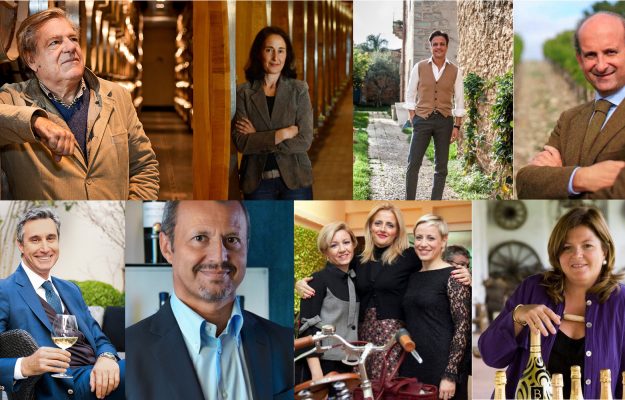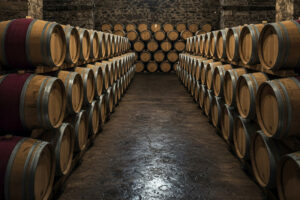The most important parameter according to private Italian wine companies is profitability, which the study by the journalist Anna Di Martino has focused on again this year, as WineNews has reported. The ranking identifies wine companies that have the best ratio between EBITDA and more than 20% turnover and the number one spot went again this year to San Guido Estate of Marchese Nicolò Incisa della Rocchetta - i.e., the famous Bolgheri estate where Sassicaia, one of the most quoted wines in the world, was created and is kept - with an index of 53.45%. Second place is again Marchesi Antinori, with a ratio of 46.11%, which has grown 4 points compared to last year, despite the fact the company has invested continuously and turnover has exceeded 200 million euros - six times higher than the first place Bolgheri winery.
Third place in Anna Di Martino’s ranking for "Corriere Economia” is the Sicilian winery of the Cusumano family with an index of 36.3%, followed by Marchesi Frescobaldi at 32.86%. The Marzotto brothers’ Santa Margherita group registered high profitability (31.95%) taking into consideration the group made significant investments during the year. Castellani (26.8%) and Ruffino (26.56%) consolidated their sixth and seventh places, followed by the new entry Famiglia Cotarella in eighth place, at 26.2%. Guido Berlucchi, the largest company in Franciacorta grew three points this year and reached 25%. Agricola San Felice closes the top ten of profitability at 24%. One position below, at 23% is Lunelli and Umberto Cesari (in rapid growth).
Continuing on, companies that have indices above 20% are the Sicilian maison Donnafugata, then the holding company from Brescia, Terra Moretti, the well-known Sardinian winery Argiolas and Masi Agricola. The profitability championship includes two new entries that reached 19% - the Farnese group and the Tuscan, Cecchi, that are among the wineries investing most in production. Two other Sicilian companies hold the 16th and 18th places, and are Tasca d'Almerita and Planeta. Astoria Wines, one of the major private companies in the Prosecco area is between the two, at spot 17. The profitability index obviously does not take into consideration the cooperative world, as their statutory goals are to help the members and paying them the best price for the grapes they give to the cooperative. And, it is For this reason that their economic parameters are not significant.
The special ranking indicating the most important viniculture properties is also reserved for private companies, and families in particular. Marchesi Antinori, as always, is in first position by far, counting 2.880 hectares in production, 200 hectares more than last year due to their most recent purchases in Tuscany, proving how land and vineyards are above all the decisive asset in the operational strategy of the antique maison led by Albiera Antinori. Following number one, there are only three companies able to boast properties larger than 1.000 hectares. They are Zonin 1821 (1.990 hectares), Marchesi Frescobaldi (1.350 hectares, 100 more than in 2016) and Castello Banfi, the largest company in Montalcino, owned by the Italo-American Mariani-May family, which this year celebrates its first 40 years of activity in the precious land of Brunello. Tenute Genagricola, the viniculture pole of Assicurazioni Generali is in fifth place, with 900 hectares, and under the management of Alessandro Marchionne is literally changing its image in order to be able to play a more important role on the market.
Terra Moretti follows counting 870 hectares, then Cusumano, 525 hectares. Bertani Domains of the Angelini family (pharmaceuticals) enters the top ten viniculture properties at number eight, while the Santa Margherita Group following its most recent acquisitions has multiplied its extension of vineyards and earned ninth place with 447 hectares, and Feudi di San Gregorio of the Capaldo family closes the top ten at 427 hectares. Tasca d'Almerita took the next spot at 404 hectares (increased compared to 2016), then Planeta, at 380 hectares, and Masi Agricola at 320 hectares. There are nine wineries boasting vineyard extensions of more than 200 hectares, and these are Cecchi (298 hectares), Fratelli Martini, Tenute Piccini (the Tuscan company has increased its vineyard properties by 30 hectares), Argiolas, Mastroberardino, Agricola San Felice, Umani Ronchi, Corte Giara and Gruppo Lunelli.
Copyright © 2000/2026
Contatti: info@winenews.it
Seguici anche su Twitter: @WineNewsIt
Seguici anche su Facebook: @winenewsit
Questo articolo è tratto dall'archivio di WineNews - Tutti i diritti riservati - Copyright © 2000/2026







































































































































































































